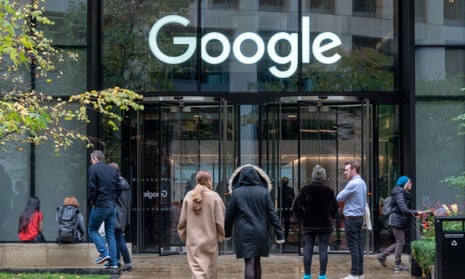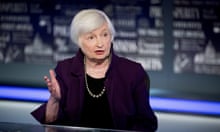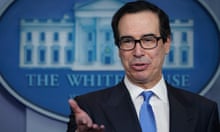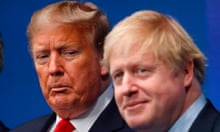The UK competition watchdog has launched an investigation into the way Google and Facebook collect and exploit personal data and have used their power to dominate the £13bn UK digital advertising market.
The Competition and Markets Authority’s wide-ranging investigation into online advertising will focus on the sector’s two biggest players, Google and Facebook, and look at whether “consumers are able and willing to control how data about them is used and collected”.
The CMA said it planned to examine concerns about how online networks were using people’s personal data – Facebook has faced heavy criticism and scrutiny over both the Cambridge Analytica data scandal and its role in the dissemination of “fake news” – including “whether making this data available to advertisers in return for payment is producing good outcomes for consumers”.
The CMA chair, Andrew Tyrie, said: “Much about these fast-changing markets is a closed book to most people. The work we do will open them up to greater scrutiny, and should give parliament and the public a better grip on what global online platforms are doing.”
Last July, Facebook was fined £500,000 by the information commissioner – the maximum possible amount at the time – for a lack of transparency and failing to protect users’ information in relation to the Cambridge Analytica scandal.
The CMA will also investigate whether there has been any abuse of power by the US technology firms, which derive a vast amount of their revenues from advertising. Google and Facebook have been forecast to control more than 70% of the UK digital ad market next year, making it harder for rivals to compete, to the detriment of consumers.

By 2020, Facebook will be bringing in an estimated £3.8bn in UK advertising spending – £1bn more than this year – and only slightly less than the value of the entire commercial TV market (£4bn).
The CMA’s chief executive, Andrea Coscelli, said: “The market study will help us further lift the lid on how major online platforms work, especially how they collect and use personal data, how they monetise their content through digital advertising, and what this means for competition. The findings from this work will be used to influence the direction of policy and regulation in the digital sector.”
In March the chancellor, Philip Hammond, called on the CMA to review the digital advertising market after recommendations made in an independent report for the Treasury by Jason Furman, who was Barack Obama’s chief economic adviser.
The report concluded that a formal market study should be launched into the UK digital ad market which is “dominated by two players and suffers from a lack of transparency”.
Last year, the world’s two biggest advertisers, Procter & Gamble and Unilever, threatened to withdraw advertising from Facebook and Google’s YouTube unless the the social networks cleaned up the “swamp”.
The review by Furman, now a Harvard professor, said a new digital markets unit should be set up in Whitehall staffed by people with technological expertise and equipped with the powers to set and enforce greater competition.
The shadow culture secretary, Tom Watson, said: “For far too long, the digital market has been dominated and distorted by data monopolies.
“Tech giants have thought themselves untouchable, unaccountable, and above the law. This is a necessary step towards bringing big tech to heel. Next, government must introduce strong safeguards and updated competition laws to ensure that online platforms work for everyone, not just the chief executives of Silicon Valley.”










